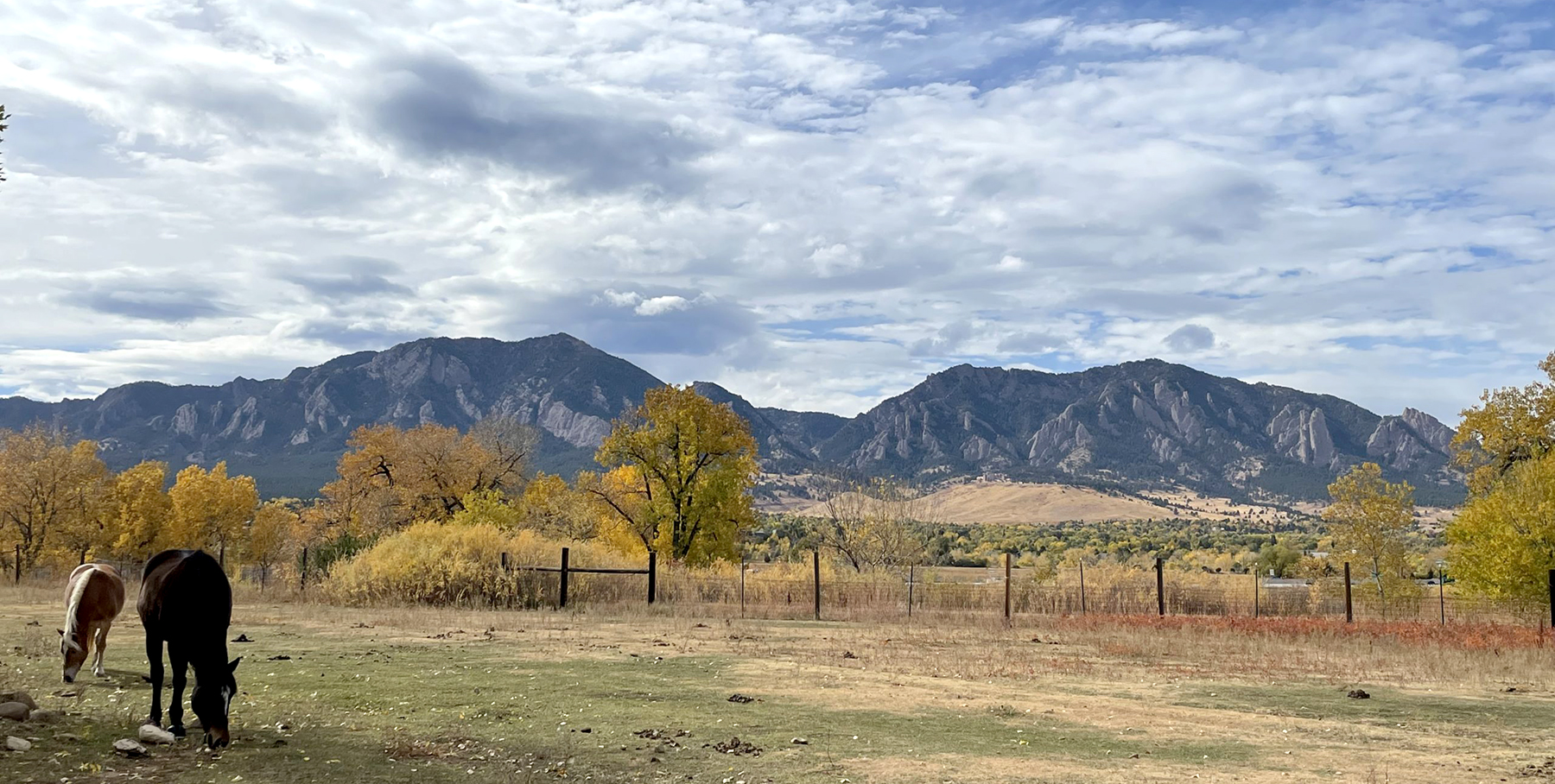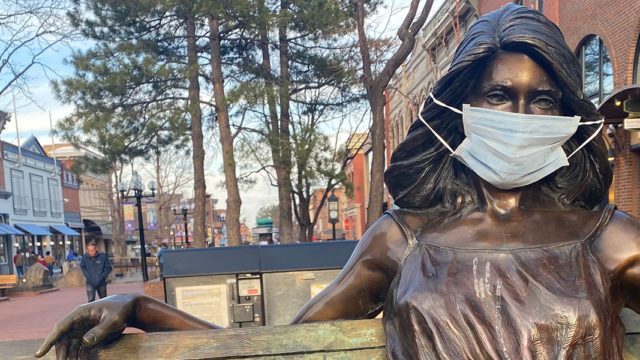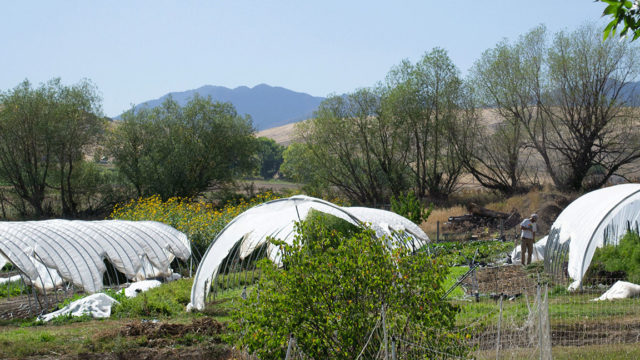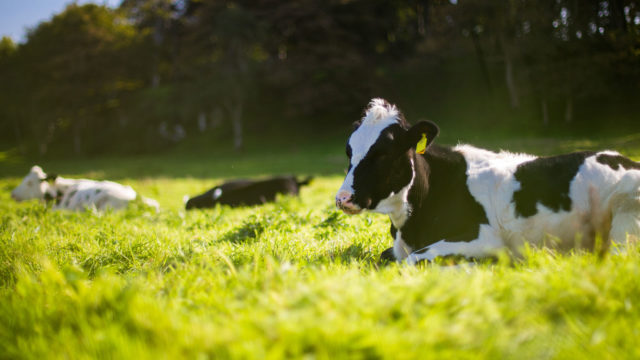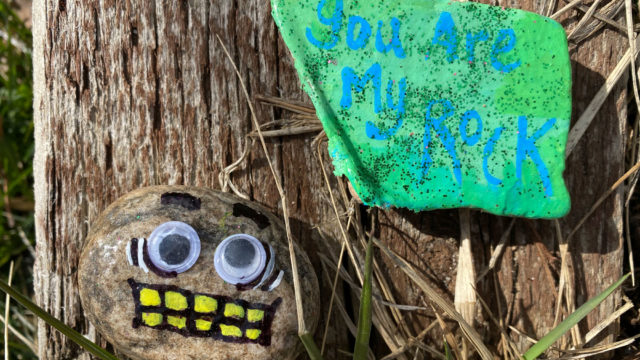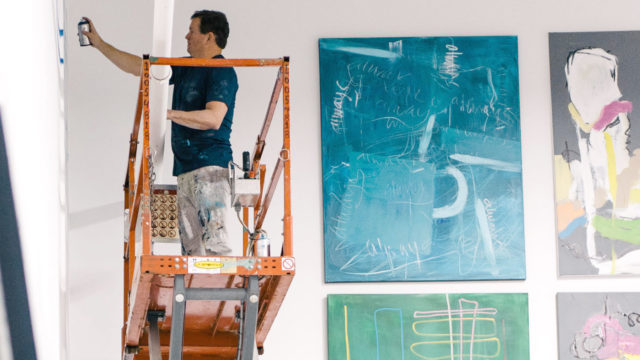Editor’s note: This story has been updated to correctly define hippotherapy as a support treatment to other therapies. A previous version of this story incorrectly attributed that a single hippotherapy class equal to a month of speech sessions off-horse to Cathy Lauderbaugh; that has also been corrected.
Toy, a chestnut Belgian-Morgan horse mix who lives and works at Rocky Mountain Riding Therapy on Boulder’s southeast outskirts, kept kicking and fidgeting while her partner brushed her.
She picked up on his elevated heart rate, due to stress and anxiety, and responded accordingly.
She plays a critical role in the business’s horse therapy practice, a service that can provide calm to those struggling with anxiety and depression.
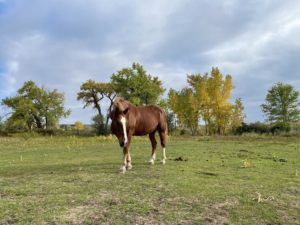
When near us, horses, because of their incredible sensitivity to body language and functions, promptly mirror back our state of mind.
Rocky Mountain Riding Therapy is one of two dozen centers and therapy centers offering equine-assisted therapy in Boulder County, with several more expanding into Denver and into the mountains in Loveland.
Even with all that supply, Rocky Mountain Riding Therapy, at 67 South Cherryvale Road, still has a two-year long waitlist for all its programs.
On around eight acres of enclosed pastures against the expansive, spectacular mountainous view of South Boulder, Rocky Mountain Riding Therapy offers classes for first responders, allowing those in stressful occupations to decompress and relieve stress with the relaxing company of horses.
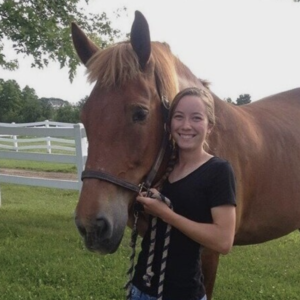
Carrie Antoine, horse trainer and Rocky Mountain Riding Therapy’s executive director since 2018, asked what the man brushing Toy was thinking about. He said he was reliving his stressful day in his mind, something Toy picked up on.
“Toy is great because she tells me what I’m feeling when I don’t know what I’m feeling,” the anxious man brushing Toy told Carrie.
An intentional hour or two with horses in nature can improve most visitors’ states of mind, as well as benefit those needing speech or physical therapy, or who face cognitive or social issues.
The array of assets equines provide is the main reason that Boulder County still demands more of such abundant, yet at-capacity programs.
Other horse therapy centers in the area also have waitlists, including the Colorado Therapeutic Riding Center in Longmont, Miracles Therapeutic Riding Center in Lafayette, The Right Step in Columbine and Hearts and Horses in Loveland.
Rocky mountain riding
Founded in 1993 on land previously used as a horse breeding farm, Rocky Mountain has run therapeutic equine-assisted programing on the land for two decades. In 1978, Boulder’s Open Space & Mountain Parks division bought the land from a private owner and now leases it to the riding center.
Today, the center employs three part-time employees, and four contracted therapists and instructors, and uses dozens of volunteers. Employees train 10 horses — but are looking to add more — belonging to two herds, separated in the barn by their temperaments and friendships.
The horses participate in hippotherapy, a treatment strategy used to support a variety of therapies, including physical, speech and occupational varieties, with a therapist, and, of course, a horse. During hippotherapy, the horse’s movement affects the rider’s pelvic floor, in turn can help with breath support.
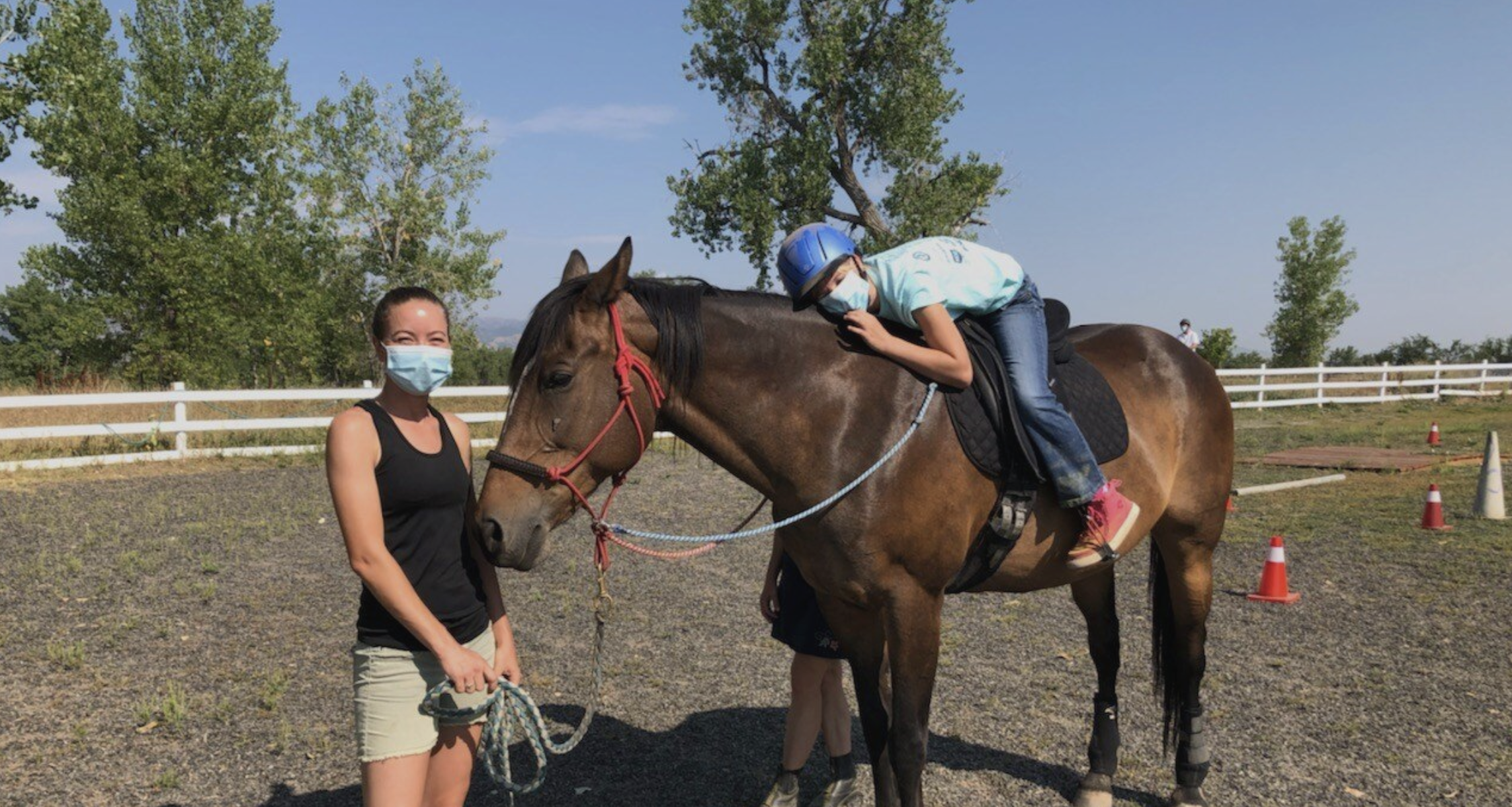
In physical therapy specifically, a rider’s pelvic floor mimics the movement of walking on solid ground, helping to improve activity off-horse by improving range of motion, core strength and balance. Group classes, which include around six students and two instructors, help with social skills and leadership training.
Carrie tells the story of one girl in a hippotherapy program who had trouble speaking when her horse wasn’t moving, but could carry on sentences while actively riding. Hippotherapy can be beneficial for children who have difficulties with breath support or the rate at which they speak.
Therapeutic or adaptive riding teaches horsemanship and riding skills to participants with special needs. Instructors stand in the middle of three or four riders and encourage independent riding, walking along the horses’ side to provide support.
Because of horses’ inherently therapeutic movement, riders learn to calm themselves, as well body awareness, range of motion and fine motor skills like navigating the reins.
Boulder pastures like Twin Oaks Farm and Front Range Hippotherapy offer similar therapeutic programs. Medicine Horse provides mounted and unmounted programs for LGBT youth and cancer survivors, as well as equine-assisted psychotherapy, or talk therapy with a licensed therapist.
The Colorado Therapeutic Riding Center also started offering equine-assisted psychotherapy last year, along with hippotherapy and therapeutic riding offerings.
Header image provided by Rocky Mountain Riding Therapy

